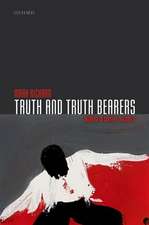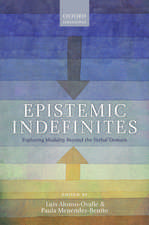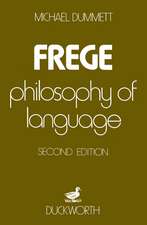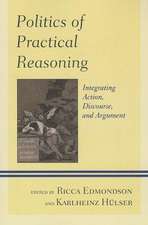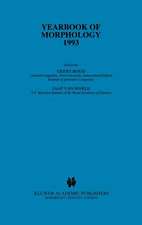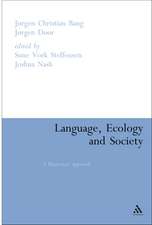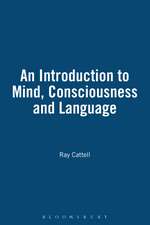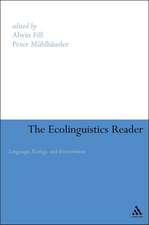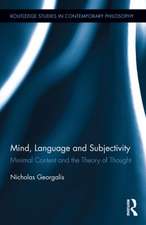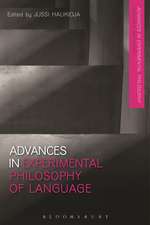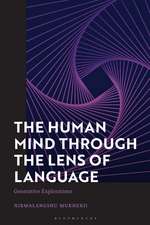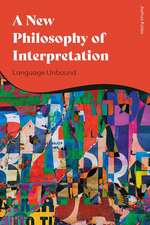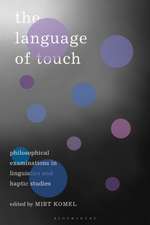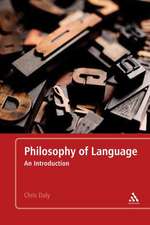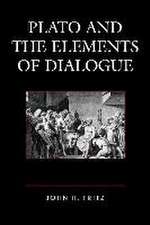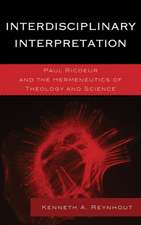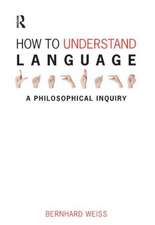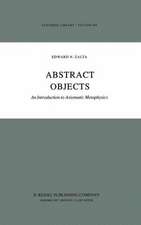Language: Key Concepts in Philosophy: Key Concepts in Philosophy
Autor Professor Jose Medinaen Limba Engleză Paperback – 14 sep 2005
Din seria Key Concepts in Philosophy
-
 Preț: 126.55 lei
Preț: 126.55 lei -
 Preț: 126.85 lei
Preț: 126.85 lei - 14%
 Preț: 164.50 lei
Preț: 164.50 lei -
 Preț: 171.44 lei
Preț: 171.44 lei - 12%
 Preț: 215.51 lei
Preț: 215.51 lei -
 Preț: 186.44 lei
Preț: 186.44 lei -
 Preț: 145.48 lei
Preț: 145.48 lei -
 Preț: 186.44 lei
Preț: 186.44 lei -
 Preț: 465.05 lei
Preț: 465.05 lei -
 Preț: 158.82 lei
Preț: 158.82 lei - 8%
 Preț: 145.01 lei
Preț: 145.01 lei -
 Preț: 171.44 lei
Preț: 171.44 lei - 17%
 Preț: 216.44 lei
Preț: 216.44 lei -
 Preț: 170.51 lei
Preț: 170.51 lei -
 Preț: 183.66 lei
Preț: 183.66 lei -
 Preț: 176.07 lei
Preț: 176.07 lei -
 Preț: 215.79 lei
Preț: 215.79 lei - 14%
 Preț: 176.52 lei
Preț: 176.52 lei -
 Preț: 236.19 lei
Preț: 236.19 lei -
 Preț: 187.40 lei
Preț: 187.40 lei -
 Preț: 185.29 lei
Preț: 185.29 lei - 14%
 Preț: 144.75 lei
Preț: 144.75 lei - 25%
 Preț: 95.63 lei
Preț: 95.63 lei - 22%
 Preț: 100.45 lei
Preț: 100.45 lei - 27%
 Preț: 307.78 lei
Preț: 307.78 lei - 25%
 Preț: 95.12 lei
Preț: 95.12 lei - 28%
 Preț: 307.04 lei
Preț: 307.04 lei - 23%
 Preț: 98.69 lei
Preț: 98.69 lei - 24%
 Preț: 96.88 lei
Preț: 96.88 lei
Preț: 236.19 lei
Nou
Puncte Express: 354
Preț estimativ în valută:
45.20€ • 47.01$ • 37.83£
45.20€ • 47.01$ • 37.83£
Carte tipărită la comandă
Livrare economică 14-28 martie
Preluare comenzi: 021 569.72.76
Specificații
ISBN-13: 9780826471673
ISBN-10: 0826471676
Pagini: 226
Dimensiuni: 138 x 216 x 23 mm
Greutate: 0.29 kg
Editura: Bloomsbury Publishing
Colecția Continuum
Seria Key Concepts in Philosophy
Locul publicării:London, United Kingdom
ISBN-10: 0826471676
Pagini: 226
Dimensiuni: 138 x 216 x 23 mm
Greutate: 0.29 kg
Editura: Bloomsbury Publishing
Colecția Continuum
Seria Key Concepts in Philosophy
Locul publicării:London, United Kingdom
Cuprins
1. Communication and Speech Acts
1.1 The communicative functions of language
1.2 Communication and performance
1.3 Knotty performances: locutionary contents, illocutionary forces and perlocutionary effects
2. Meaning, Sense and Interpretation
2.1 Two traditions in Philosophy of Language
2.2 From Frege to Donnellan: reference, names and descriptions
2.3 Interpretation and translation: neo-empiricist and hermeneutic approaches to linguistic understanding
3. Indeterminacy and Language Learning: Communication as the Meeting of Minds
3.1 Meaning scepticism
3.2 Two philosophical models of language learning
3.3 Enculturation and shared intentionality
3.4 Conversation analysis
4. Linguistic Creativity and Relativism
4.1 Linguistic creativity and the sociology of language
4.2 Metaphor
4.3 Linguistic relativism
5. Speakers, Linguistic Communities and Histories of Use
5.1 Idiosyncrasies and conventions
5.2 Communities, deconstruction and histories of use
6. Language and Identity
6.1 Interpellation and censorship
6.2 Tongues untied
Notes
References
Further Suggested Reading
Index
Recenzii
"This introduction to the philosophy of language in Continuum's key concepts series aims to provide a concise and accessible overview suitable for undergraduates without a prior background in the area. Over the course of six chapters the author sets out a broad conception of the subject by providing a wide-ranging survey covering not only philosophical works, but also theories from linguistics, psychology, and sociology."- Michael Fenton, Metapsychology Online Review



